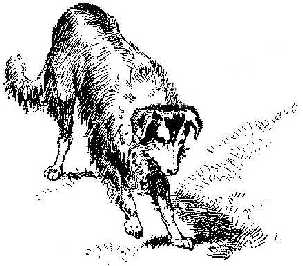Click  To Print
To Print
|
|
|
Introduction to Poem
At a pediatric educational conference sponsored by the University of Minnesota, a young academic pediatrician addressed the causes and cures for violence. The usual statements were made about the media, with which I agreed. In addition, spanking was claimed to be a factor, a very questionable hypothesis. Poverty, lack of education and racism were mentioned, all of which, I feel, miss the main point. It was suggested that if Pediatricians brought up the subject in the office, an impact could be made.
One of my colleagues questioned the place of spanking in this discussion since the data is not really that convincing. I responded to the absence of any mention of family, morals and religion. The outbreak of violence in America correlates, not with widespread poverty or a worsening of racism, (and certainly not with an increasing use of spanking) but with breakdown of the family, loss of our moral consensus and with departure from a national sense of accountability to God.
Poverty was worse in the Depression, yet there was not the outbreak of crime. Racism was worse in the 40's and 50's, but African Americans did not then experience the epidemic of violence that came later. The separation of sex from commitment with the rise of birth control and abortion, together with ill-conceived welfare programs making it easier for men to walk out on their children, contributed to a breakdown of the family.
Absence of a father in the home is the strongest correlate with violent crime in a young man. When children have been taught (as in "values clarification" programs which naively assume that given a choice, people will do the right thing) that they may choose for themselves what is right for them, some are going to choose dishonesty and violence. And when a person feels that his life is a random accident and there is no accountability beyond what he can get away with, why should he sacrifice for another or deny himself any momentary pleasure?
The young academic deferred to Dr. Robert Blum, head of Adolescent Medicine to comment. He said, in his measured tones which always seem to imply that each word is carefully chosen, "Ross and I are not as far apart as we used to be."
He went on to say that they had just submitted for publication a study that showed the protective value of, not simply a father, but a parent in the home at four critical times. If a parent is in the home when children get up, when they come home from school, when they eat supper and when they go to bed, there is a protective effect against all sorts of bad behaviors. Single parents cannot do this as easily, so that is the reason absent father homes show up as bad.
It is not religion, according to their study, rather it is religiosity -- the idea that there is a higher good to which one can give oneself-- that protects children and adolescents. At this point I chimed in and said, "And it helps if it is true!" To which Dr. Blum responded, with his most professorial tone, "Ah, if you believe it, then it really is true." The titters of laughter at my comment turned to the kind of "Ahh!" usually reserved for fireworks on the 4th of July. Surely the man is brilliant, they thought. I wrote and sent Bob a poem called "The Chase," recalling the verse, "Ever learning and never coming to knowledge of the truth."

The Chase
In ever closing, circling waves,
The hound, excited by the chase,
Now far, now near, around the tree,
His nose detecting on the ground,
The scent of what he does not see.
And on the plane of where he lives
A trace is all that truly is.
The world is full of wafting smells,
Subjective, vague,
No heav'ns, no hells.
But why the glory of the chase?
And how to know if near or far?
Will he who runs find that which flies?
E'er lift the nose
And raise the eyes?
Ross Olson
Send comments to me at ross{at}rossolson.org
The URL for this document is
|